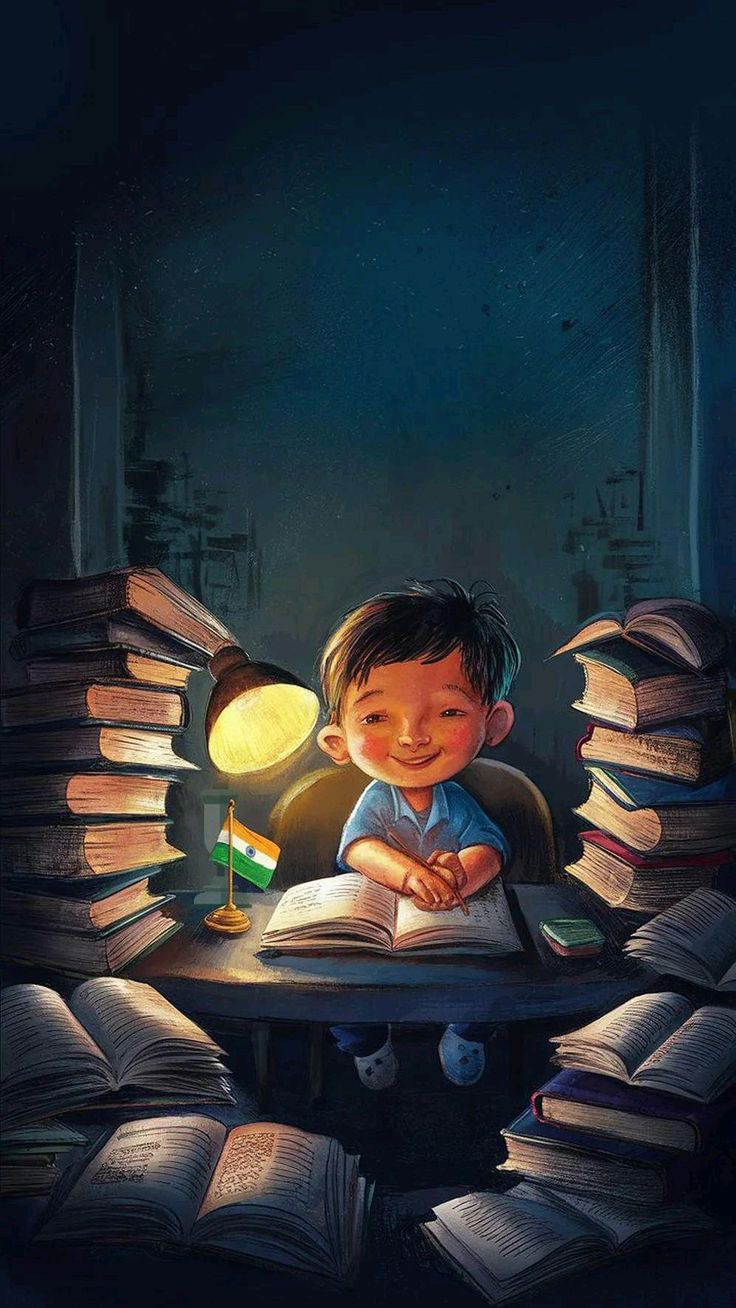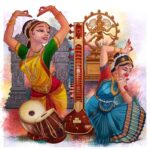Indian Writers: Biography, Daily Life, Impact, History, and Significance
Indian Writers: India has a rich literary tradition that spans thousands of years, with writers contributing significantly to the cultural and intellectual heritage of the country. From ancient epics like the Mahabharata and Ramayana to contemporary works in fiction, poetry, and nonfiction, Indian writers have explored a vast array of themes, providing profound insights into the complexities of life, society, and the human condition. This article delves into the lives, impacts, and significance of Indian writers, highlighting their biographies, daily lives, contributions, and lasting influence on society.
History of Indian Writers
The history of Indian literature dates back to ancient times, with the earliest texts being written in Sanskrit, Tamil, and other regional languages. The Vedas, Upanishads, and epics like the Mahabharata and Ramayana form the foundation of Indian literary traditions. These texts not only reflect the culture and philosophy of ancient India but have also had a lasting influence on global literature and thought.
In the medieval period, Persian and Arabic literary traditions also flourished in India, with writers like Amir Khusro contributing to the development of Hindavi, a precursor to modern Hindi and Urdu. The colonial era saw a significant rise in English-language literature, with writers like Rabindranath Tagore and Mulk Raj Anand addressing social, political, and cultural issues through their works.
Today, Indian writers continue to make their mark both in India and internationally, with authors like Arundhati Roy, Chetan Bhagat, and Ruskin Bond gaining widespread recognition.
list of notable Indian writers across various genres and time periods:
Classic and Pre-Independence Writers:
- Rabindranath Tagore – Nobel laureate, poet, novelist, and philosopher (e.g., Gitanjali, The Home and the World).
- Bankim Chandra Chattopadhyay – Author of Anandamath, which includes the national song Vande Mataram.
- Sarojini Naidu – Poet and freedom fighter, known as the “Nightingale of India.”
- Munshi Premchand – Pioneer of modern Hindi and Urdu literature (e.g., Godaan, Nirmala).
- Raja Rao – Author of Kanthapura and The Serpent and the Rope.
- R.K. Narayan – Known for Malgudi Days and The Guide.
Post-Independence Writers:
- Arundhati Roy – Booker Prize winner for The God of Small Things.
- Salman Rushdie – Booker Prize winner for Midnight’s Children.
- Vikram Seth – Author of A Suitable Boy and The Golden Gate.
- Amitav Ghosh – Known for The Shadow Lines, The Ibis Trilogy, and Gun Island.
- Ruskin Bond – Renowned for his short stories and children’s literature (e.g., The Blue Umbrella).
- Khushwant Singh – Author of Train to Pakistan and The Company of Women.
Contemporary Writers:
- Chetan Bhagat – Popular for Five Point Someone and 2 States.
- Jhumpa Lahiri – Pulitzer Prize winner for Interpreter of Maladies.
- Anita Desai – Known for Clear Light of Day and In Custody.
- Shashi Tharoor – Author of The Great Indian Novel and An Era of Darkness.
- Amish Tripathi – Known for the Shiva Trilogy and Ram Chandra Series.
- Aravind Adiga – Booker Prize winner for The White Tiger.
- Kiran Desai – Booker Prize winner for The Inheritance of Loss.
- Perumal Murugan – Known for One Part Woman and Poonachi.
Poets:
- Gulzar – Renowned poet, lyricist, and filmmaker.
- Javed Akhtar – Celebrated poet and lyricist.
- Kamala Das – Known for her confessional poetry (e.g., My Story).
- Harivansh Rai Bachchan – Famous for Madhushala.
Regional Writers:
- Ismat Chughtai – Urdu writer known for Lihaaf and The Quilt.
- Mahasweta Devi – Bengali writer and activist (e.g., Hazaar Chaurasi Ki Maa).
- Vaikom Muhammad Basheer – Malayalam writer known for Balyakalasakhi.
- O.V. Vijayan – Malayalam author of Khasakkinte Itihasam.
- U.R. Ananthamurthy – Kannada writer of Samskara.
- Bhalchandra Nemade – Marathi author of Kosala.
Non-Fiction Writers:
- Ramachandra Guha – Historian and author of India After Gandhi.
- Shashi Tharoor – Known for his works on Indian history and politics.
- Amartya Sen – Nobel laureate economist and author of The Argumentative Indian.
- Pankaj Mishra – Author of From the Ruins of Empire and Age of Anger.
Emerging Voices:
- Jerry Pinto – Author of Em and the Big Hoom.
- Meena Kandasamy – Poet and novelist (e.g., When I Hit You).
- Siddhartha Mukherjee – Pulitzer Prize-winning author of The Emperor of All Maladies.
- Anuja Chauhan – Known for The Zoya Factor and Battle for Bittora.
- K.R. Meera – Malayalam author of Hangwoman.
- Samanth Subramanian – Author of This Divided Island.
This list highlights the diversity and richness of Indian literature across languages, genres, and eras.
Biography of Notable Indian Writers
- Rabindranath Tagore
Rabindranath Tagore was not only a poet but also a philosopher, musician, and social reformer. Born in 1861, he became the first non-European to win the Nobel Prize in Literature in 1913 for his collection of poems, Gitanjali. Tagore’s works reflect a deep connection with nature, human emotions, and the pursuit of spirituality. His poetry and songs are an integral part of Indian culture, with his composition Jana Gana Mana becoming the national anthem of India. - Mulk Raj Anand
Mulk Raj Anand was a prominent writer and social reformer, known for his portrayal of the struggles of the marginalized in society. His most famous works, such as Untouchable and Coolie, highlight issues like caste discrimination, poverty, and social injustice. Anand’s writing played a key role in raising awareness about the plight of the oppressed in colonial India. - Arundhati Roy
Arundhati Roy’s debut novel, The God of Small Things, won the Booker Prize in 1997, propelling her into the international literary spotlight. Known for her lyrical writing and exploration of complex social issues, Roy’s work often delves into themes like caste, gender, and political corruption. She has also become a prominent activist, advocating for environmental and human rights causes. - Ruskin Bond
Ruskin Bond is one of India’s beloved authors, particularly known for his stories set in the hills of Uttarakhand. His simple yet evocative writing style captures the beauty of nature and the lives of ordinary people. Bond has written more than 50 books, and his works continue to resonate with readers of all ages.
Daily Life of Indian Writers
The daily life of Indian writers varies, but common themes include solitude, discipline, and a deep connection to their surroundings. Many writers find inspiration in their environments, whether it’s the bustling streets of Delhi or the tranquil mountains of Himachal Pradesh. Writing is often a solitary endeavor, requiring long hours of focus, research, and revision.
Writers like Ruskin Bond often draw from personal experiences, finding peace and creativity in nature. Others, like Arundhati Roy, balance their writing with activism and social work. For most Indian writers, literature is not just a profession but a calling, shaping their daily routines and influencing their worldview.
Impact of Indian Writers on Society
Indian writers have had a profound impact on society, using their words to reflect the struggles, hopes, and dreams of the people. Their works have influenced social movements, challenged political systems, and highlighted the importance of human rights and justice. Writers like Mulk Raj Anand and R.K. Narayan explored themes of inequality and oppression, giving a voice to the voiceless.
Moreover, Indian literature has played a crucial role in shaping national identity. The works of Tagore, for example, have shaped the cultural consciousness of India, while contemporary writers continue to address issues that matter to the modern Indian citizen, such as corruption, poverty, and the clash between tradition and modernity.
Facts About Indian Writers
- Multilingual Influence: Indian writers have contributed to literature in a variety of languages, including English, Hindi, Bengali, Urdu, and Tamil, making Indian literature rich and diverse.
- Literary Awards: Many Indian writers have won prestigious international awards, including the Booker Prize, Jnanpith Award, and Sahitya Akademi Award, cementing their global recognition.
- Themes of Social Justice: Indian writers have frequently addressed social issues such as caste discrimination, gender inequality, and poverty, using literature as a tool for social change.
Importance and Significance of Indian Writers
The significance of Indian writers lies in their ability to capture the essence of Indian life, whether through fiction, poetry, or essays. Their works reflect the diversity and complexity of Indian society and offer a mirror to the nation’s changing social, political, and cultural landscape. Through their stories, they foster empathy, challenge norms, and spark critical conversations about identity, justice, and equality.
Indian writers also play a vital role in preserving and promoting the country’s rich literary traditions. By combining modern storytelling techniques with traditional themes, they ensure that India’s literary heritage remains relevant in the 21st century.
FAQs About Indian Writers
1. Who is the most famous Indian writer?
Rabindranath Tagore is often considered the most famous Indian writer, especially for his contributions to poetry and music. His Nobel Prize-winning work, Gitanjali, has had a lasting influence.
2. What is the role of Indian writers in social change?
Indian writers have long used their works to challenge social norms and bring attention to issues such as caste discrimination, gender inequality, and the plight of the marginalized. Their writing has sparked social movements and brought about change.
3. How has Indian literature evolved?
Indian literature has evolved from ancient Sanskrit texts to modern novels, plays, and poetry. It has incorporated influences from colonial rule, regional languages, and global literary trends, creating a rich and diverse literary tradition.
4. Why is Arundhati Roy’s The God of Small Things important?
Arundhati Roy’s The God of Small Things is important because it explores themes of caste, family, and forbidden love in post-colonial India. The novel won the Booker Prize and received international acclaim for its lyrical prose and complex narrative.
Conclusion: Wishing Future Indian Writers Success
Indian writers have shaped the cultural, intellectual, and emotional fabric of India. Through their works, they provide a window into the heart and soul of the nation, offering insights into the complexities of life, love, and loss. As the literary world continues to evolve, Indian writers will undoubtedly remain at the forefront, using their voices to challenge, inspire, and change the world.










